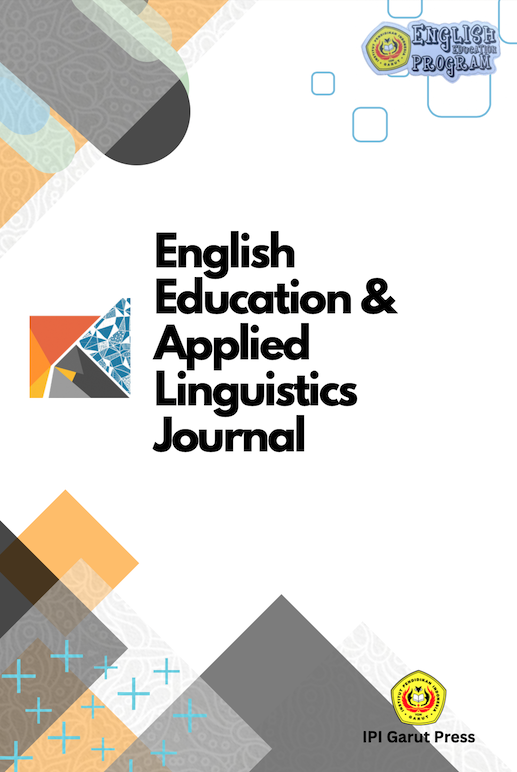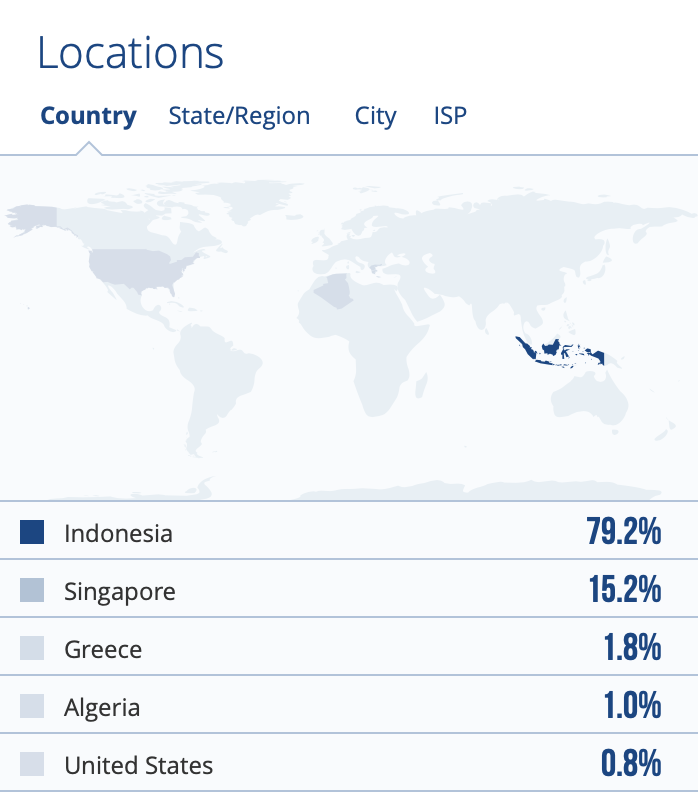Improving Students’ Writing Ability through Jeopardy Game at the Second Grade Students of Junior High School
DOI:
https://doi.org/10.31980/eealjournal.v8i2.2617Keywords:
Improvement, Writing Skill, Jeopardy Game, Junior High School StudentsAbstract
This research aimed to determine the impact of using Jeopardy games on improving students’ writing ability in learning English at Junior High School state 2 in Padang. Jeopardy game is a guessing game type with a unique rule, which the clues in statements form and answers in questions form, allowing players to think critically and creatively. This research used a quantitative research with a pre-experimental approach and data collection was carried out using pre-test and post-test to analyze the effect of using Jeopardy games on students who consisted of 32 students from class VIII, who were selected using cluster random sampling. The research results show that Jeopardy games can improve students’ writing ability. The pre-test result showed average score was 47,88 and the post-test was 70,89. After data was collected, the data was analyzed using t-test formula. The result of the analysis showed that the value of t-test > t table is 9,802 > 2,042. The last hypothesis shows that (Ho) is rejected and (Ha) is accepted. It means there is a significant influence on improving students’ writing ability using Jeopardy game.
References
Agustin, & Zainil (2022). The effect of jeopardy game on vocabulary mastery in eleventh grade at the SMAN 1 Kamang Angek. Journal of Language Teaching. 11(3), 332-341.
Asni (2018). The use of jeopardy game to improve descriptive text writing (Pre-experimental at the eighth grade students of MTS Miftahul Jannah Gowa). Repositori UIN Alauddin.
Bender, D., & Randall, K. E. (2005). Description and evaluation of an interactive jeopardy game designed to foster self-assessment. Internet Journal of Allied Health Sciences and Practice, 3(4), 5.
Creswell, J, D & Creswell, J, D. (2018). Research Design: Qualitative, Quantitative, and Mixed Methods Approaches. Singapore: SAGE Publications, Inc.
Thohirah, M. D., Batau, S. H., & Syam, U. (2023). Using Jeopardy game to improve students’ reading comprehension of the eighth grade in UPT SMP Negeri 35 Makassar. The academic: English language learning journal, 8(1), 76-89.
Dewi, R. S. (2014). Teaching writing through Dictogloss. Indonesian Journal of English Education, 1(1),67-68
Faridah & Dangin (2022).The Effectiveness of Jeopardy Game to Teach Writing (An Experimental Study at Indonesian Seventh Grade Students). International Journal of Educational Research & Social Sciences. 4(3).
Paltridge, B. (2004). Academic writing. Language teaching, 37(2), 87-105.
Imanisa, S. T., Huzairin, H., & Sudirman, S. (2017). Improving the Students' Ability in Writing
Descriptive Text through Guided Questions Technique at the Second Grade of SMPN 23 Bandar Lampung (Doctoral dissertation, Lampung University).
Pratami, I. G. A. P. S., Nitiasih, P. K., & Budiarta, L. G. R. (2023). Development of educational games as learning media for english learning for primary students. Language circle: Journal of language and literature, 17(2), 317-324.
Saputra, R. & Marfua , L. (2022). Designing authentic assessment for writing skill at the tenth grade of SMAN Unggul Dharmasraya. ELTIN journal of English language. 4(1),252-260.
Sugiyono (2016). Metode Penelitian Kuantitatif, Kualitatif dan R&D. Bandung: PT penerbit Alfabet.
Suryani, I. (2020). Improving students’ writing ability through inquiry-based learning method of the junior high school at MTS AL-MAHRUS Medan. Uin Sumatera Utara. Medan
Thuan, P. D. (2025). Gamified Mobile Learning: EFL Students' Attitudes Toward Quizizz for Grammar Instruction. International Journal of Interactive Mobile Technologies, 19(12), 38
Downloads
Published
How to Cite
Issue
Section
License
Copyright (c) 2025 English Education and Applied Linguistics Journal (EEAL Journal)

This work is licensed under a Creative Commons Attribution-NonCommercial-ShareAlike 4.0 International License.






